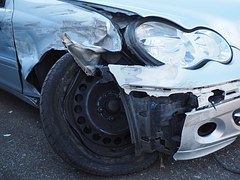Can I File a Maryland Claim if the At Fault Driver Was From Another State?

Experienced personal injury lawyers in Baltimore have handled cases where the at -fault party was not from Baltimore, or even from Maryland. This causes potential problems in a few areas. It might be difficult to have the person served with a summons and complaint, should that become necessary.

The concept of jurisdiction –the power of a court to hear a case, or its authority over persons or property- comes in to play. All Baltimore personal injury and accident lawyers have gone to law school, where they studied cases on personal jurisdiction, i.e. the court’s authority over a person.

Historically, a court did not have power over a person not physically before it or present in the jurisdiction. Over the last 75 years, that area of jurisprudence has evolved. Today, we have what are called “long arm” statutes, specifying that if a non-resident commits a tortious act within a state, and causing a car accident would be and example of a tortious act, then they are subject to the personal jurisdiction of the state courts where the accident occurred. All states, including Maryland have enacted similar laws, and the courts that have heard arguments about them have found, at least with respect to being physically present and causing a tortious act within a state, that the exercise of personal jurisdiction passes constitutional muster.
OMG! An Out- of – State Driver Just Hit Me. The How to Guide
The most critical phase for securing information is invariably in the moments following the collision.
- Call the Baltimore City Police Department:
Always insist on a police report, even for minor accidents. They might decide they have better things to do, and they very well may. Don’t make the assumption. An official report is a powerful legal document that will contain the other driver’s name, address, driver’s license number, and insurance information. The responding officer is responsible for verifying this information. Be sure to get the police report number before you leave the scene.
- Gather Your Own Evidence:
Do not rely solely on the Baltimore police. Use your smartphone to take clear pictures of everything. This includes:
The other driver’s license and insurance card. Their license plate (get a close-up and a wider shot showing the plate on the car).
The damage to both vehicles.
The overall accident scene, including skid marks and traffic signs. - Collect Contact Information:
Get the other driver’s full name and phone number. It’s also crucial to identify any witnesses and ask for their names and phone numbers. Their independent testimony can be invaluable if the other driver later becomes uncooperative.
- Post-Accident Procedures and Professional Help
If the driver is out of state, you might have absolutely not problem with your claim or your personal injury case. Odds are, you will. If they are jurisdictional, you might lose your case.
Once you’ve left the scene, the search moves to official channels. Optimize your prospects of recovery.
Contact Your Insurance Company: Report the accident to your insurer immediately. Provide them with all the information you collected. Insurance companies have entire departments, dedicated to dealing with these situations. They will use the policy number you provided to contact the at-fault driver’s insurance carrier, initiating the claims process. This is often the most direct path to resolution.
Leverage the Police Report: Obtain a copy of the official police report as soon as it’s available. This document is the primary tool your insurance company or attorney will use. It provides an official, third-party record of the events and the identities of those involved.
Hiring an Attorney: If the damages are significant or you’ve suffered injuries, hiring a personal injury attorney is a wise move. Even a case with modest injuries, requiring litigation with an out of Baltimore motorist likely requires attorney. If the driver is unresponsive, an attorney can hire a professionals to locate them for the purpose of “service of process,” which is the formal procedure of delivering legal documents to notify them of a lawsuit. State laws, such as a “long-arm statute,” provide a legal basis for suing an out-of-state resident who caused an injury in the local state, ensuring they can’t simply evade responsibility by crossing state lines.
Jurisdictional concerns are more acute where the accident occurred in another state, and the driver is from another state. Where the only connection between an accident and the state of Maryland is that the Plaintiff lives, here, suit may, and likely will need to be filed elsewhere.



